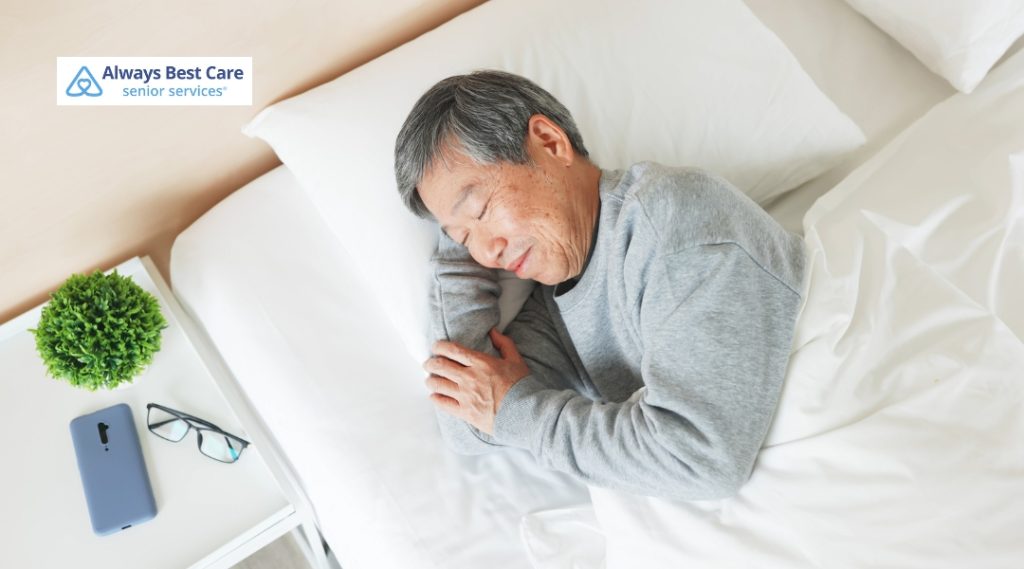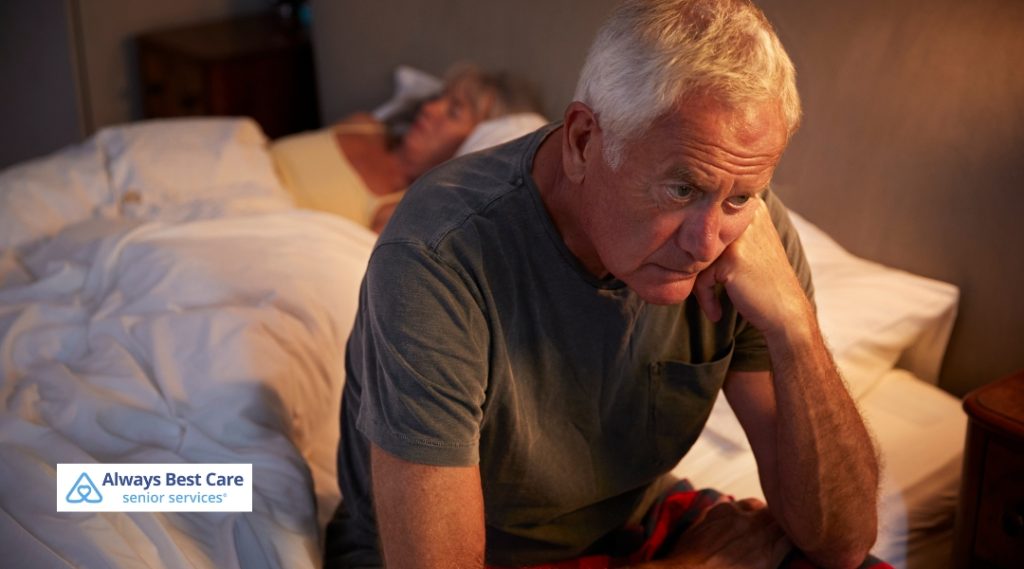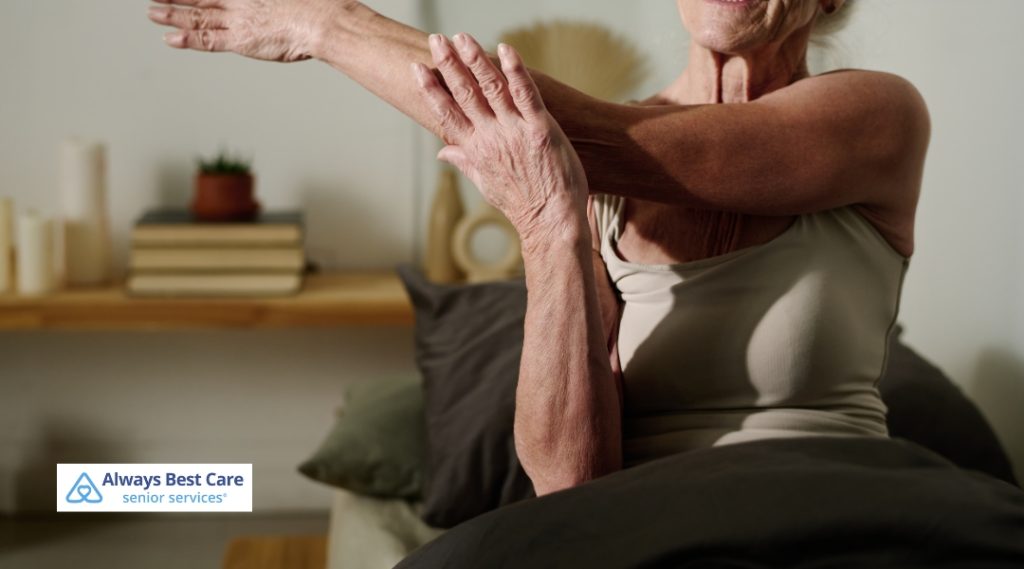The Senior’s Guide to Beating Insomnia and Sleeping Soundly in West Monroe, LA

Ah, sleep! It’s the one thing we all crave, but sometimes, it feels like it’s always just out of reach—especially for seniors.
If you’re in West Monroe and finding it hard to sleep, you’re not alone.
Many seniors struggle with insomnia, and it can take a real toll on both your body and mind.
Fortunately, with the right strategies, getting a good night’s sleep can become part of your routine again. Let’s walk through how you can start sleeping soundly and feeling your best every day.
Table of Contents
Why is Sleep Harder to Come By as We Age?
It’s a fact: as we age, sleep doesn’t come as easily.
Seniors often experience changes in their sleep patterns, which can make it harder to get the rest they need.
The body’s internal clock, or circadian rhythm, starts to shift, and that can mean waking up earlier or having trouble staying asleep at night. It’s frustrating, right?
Seniors are also more likely to deal with health issues like arthritis, sleep apnea, or even anxiety, all of which can disrupt sleep.
Medications, too, can interfere with your sleep schedule, and let’s not forget about the stress that can come with managing these conditions.

The Toll of Poor Sleep on Your Health
When sleep is disrupted, the effects go beyond just feeling groggy the next day. In fact, ongoing poor sleep can contribute to a whole range of health problems.
For seniors, lack of sleep can increase the risk of chronic conditions like heart disease, high blood pressure, and diabetes.
It can also worsen cognitive decline and increase the likelihood of falls, which is a big concern for seniors.
On top of the physical effects, insomnia can take a toll on mental health as well. You might feel more anxious, irritable, or even depressed if you’re not getting quality sleep.
5 Tips for Beating Insomnia and Sleeping Soundly
- Keep a Consistent Sleep Schedule: Your body thrives on routine, and sticking to a consistent sleep schedule can work wonders. Go to bed and wake up at the same time each day—even on weekends. This helps regulate your internal clock, making it easier to fall asleep and wake up feeling refreshed.
- Create a Relaxing Bedtime Routine: It’s hard to sleep when your mind is racing. To help your body relax, create a calming bedtime ritual. Whether it’s reading a book, taking a warm bath, or listening to soft music, find what helps you wind down and make it part of your nightly routine. This tells your body it’s time to sleep.
- Optimize Your Bedroom Environment: A comfortable sleep environment is key to a good night’s rest. Make sure your bedroom is cool, dark, and quiet. If noise is an issue, consider using a white noise machine or earplugs. And don’t forget the importance of a good mattress and pillows. A little investment in your sleep space can go a long way in helping you sleep better.
- Limit Caffeine and Alcohol: Caffeine and alcohol might seem like quick fixes to help you fall asleep, but they can actually disrupt your sleep later in the night. Try to limit your intake, especially in the afternoon and evening, to ensure your sleep isn’t interrupted. It’s better to wind down naturally.
- Stay Active During the Day: Getting regular exercise is one of the best ways to improve your sleep. Whether it’s a gentle walk, a swim, or yoga, staying active helps your body feel ready for rest at night. Just be sure not to exercise too close to bedtime, as it can leave you too energized to sleep.

When to Seek Professional Help for Insomnia
Sometimes, insomnia becomes a persistent issue despite all efforts to improve sleep. If you or your loved one has been struggling with sleep for weeks or months, it may be time to seek professional help. Conditions like sleep apnea, restless leg syndrome, or depression can cause chronic insomnia, and a healthcare professional can provide the right diagnosis and treatment plan.
One option is cognitive behavioral therapy for insomnia (CBT-I), which can help address the root causes of sleep problems without relying on medication. Sleep studies or even a visit to a sleep specialist can provide valuable insight into what’s really going on.
FAQ: Beating Insomnia for Seniors in West Monroe, LA
Why do seniors wake up more often at night?
As we age, our sleep cycles become lighter, and we spend less time in the deep, restorative sleep that younger people experience. This can cause seniors to wake up more often during the night.
Can exercise help improve sleep for seniors?
Yes! Regular physical activity during the day can help seniors fall asleep faster and stay asleep longer. Just avoid vigorous exercise right before bedtime, as it can make it harder to relax.
What should I do if I wake up in the middle of the night and can’t fall back asleep?
If you wake up and can’t get back to sleep, avoid looking at the clock, as this can cause anxiety. Try some deep breathing, light stretching, or reading to help you relax and fall back asleep.

Restful Nights Await in West Monroe
Getting restful sleep is essential for seniors in West Monroe, and it’s completely within reach. By implementing simple strategies like establishing a sleep routine, creating a relaxing environment, and staying active, you can drastically improve your sleep quality.
If you or a loved one are struggling with insomnia and need extra support, we are here to help. Contact Always Best Care of West Monroe at (318) 322-2223 to schedule a care consultation and learn how our in-home care services can improve your quality of life. A restful night’s sleep is just a call away.





